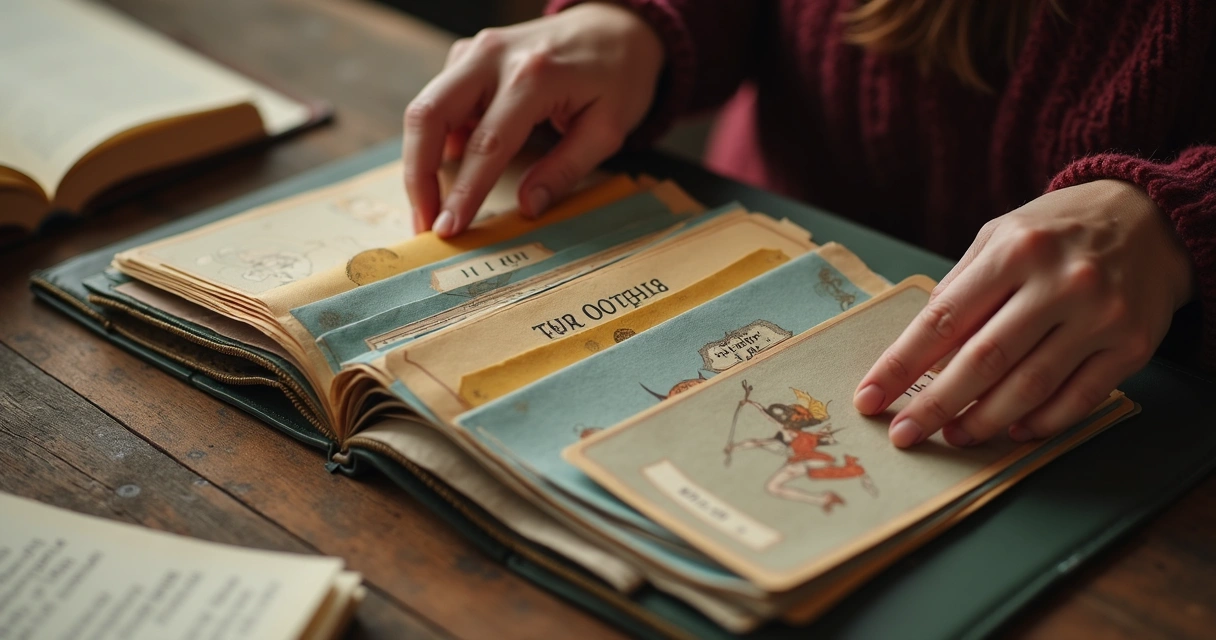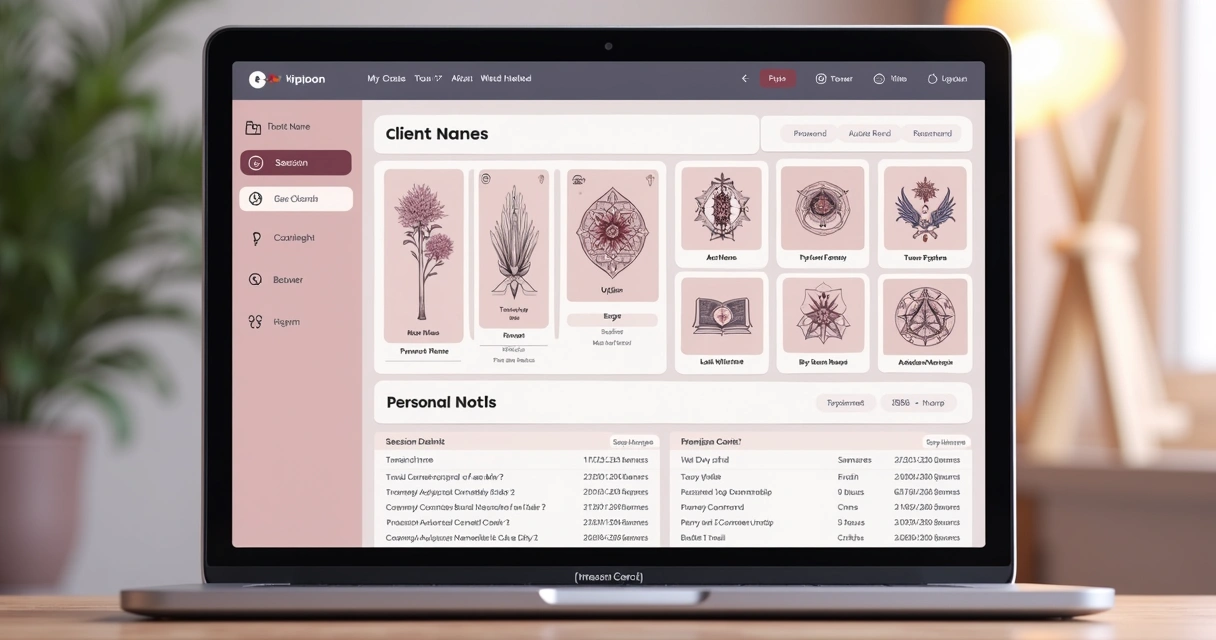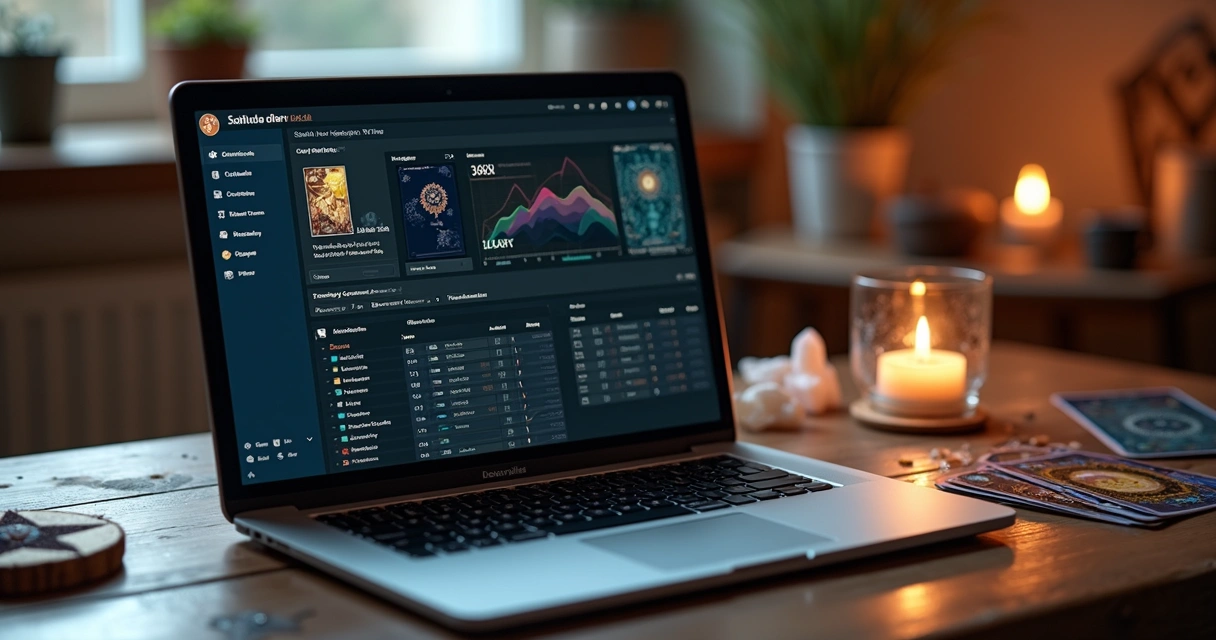Have you ever finished a reading, closed your cards, and then sat back and wondered—where should I keep this? What about the next visit, or the conversation you had a few months ago with that same client? It’s easy for mystical professionals to feel the weight of their own records. The details get tangled. The stories of seekers and the signs that showed up, all scattered in notebooks, emails, and sometimes, even scraps of paper. But there is a way, a gentler approach, to keep all this sacred information as safe and clear as you keep your crystals.
Why client records matter in mystical practices
Clients come to you not just for guidance, but also with trust. Each session isn’t just about shuffling decks or interpreting natal charts—it’s about creating a private, respectful space. Keeping accurate records of past consultations isn’t only helpful for you. It means recognizing your client’s spiritual journey and treating their personal stories carefully.
But why keep such detailed files at all? Think about the patterns you notice as you track client journeys. Maybe someone asks for annual New Year readings. Or you see progress as someone works through recurring questions. These details, the private notes you write after a session, they help you serve better. Ultimately, neat and trustworthy files help you offer continuity, respect privacy, and support deeper growth.
Steps to organize client files thoughtfully
There’s no magic spell for paperwork, but there are steps, mindful ones, to prevent chaos.
1. Separate client information from readings
- Start by keeping basic client contact details in one place. This could be a digital card or a physical sheet, but don’t mix their personal info with their session details.
- Each reading deserves its own entry, dated and labeled with the type of session (tarot, astrology, runes, etc).
2. Create clear folders or entries for each client
- If you’re using a digital service, create a dedicated profile. If you prefer paper, reserve one folder, notebook, or binder tab for each client.
- Label everything intuitively so you find what you need in seconds, not hours. Simplicity tends to work best.
 3. Make session notes structured, but flexible
3. Make session notes structured, but flexible
- Include the date, duration, method used, key questions, strategies discussed, and any intuitive impressions you want to remember.
- Leave a bit of space for freeform notes—a stray thought, a feeling, or a follow-up question.
4. Store everything securely and respect privacy
- Do not leave files or notes in public view. Even accidental exposure could break trust.
- For digital files, password-protect folders or use encrypted systems. There are practical steps for confidentiality you can follow, like managing access controls and regular checks on your process.
Confidentiality, compliance and informed consent
Keeping client files isn’t just your decision—it involves your client’s right to privacy. According to best practices in data privacy, you need informed consent before collecting or recording someone’s personal or mystical data. Let clients know how their information will be kept, for how long, and who will see it.
Clear and open communication about privacy is key.
Many established practitioners now offer a short written privacy notice, just a paragraph or two, before beginning a session. If you're curious about writing one, or just want to brush up on the basics, check recent guidance for holistic and mystical practices.
Paper, digital, or both?
Maybe you love the tangible feel of a notebook. Or perhaps you want the freedom to check your calendar and past files on your phone between sessions. Both options have value.
- Paper is direct and sometimes feels more personal, especially for those who prefer to jot quick notes after a reading.
- Digital records, when managed well, don’t get lost, torn, or stained. Encrypted platforms keep data safer and make searching for past sessions a matter of seconds.
The real trick? Don’t use both unless you absolutely must. Having client details in two different places is risky—you might lose something or store it twice. If you need hybrid solutions (paper notes plus digital summaries, for instance), establish clear rules for yourself on what goes where.
How mystical professionals can simplify organization
A few minutes after each session can save hours later.
It’s tempting to put off notes or file updates until “later.” Admit it, you've done it, too. Most of us have. But, the longer you wait, the fuzzier the details become. Make it a ritual after each session—finish your notes, update your files, label and store.
Platforms designed for spiritual consultants, such as MysticLog, help by keeping client information and reading details together, organized, and safe. You get dashboards to see client trends, search tools to find old notes, and a secure space to keep it all private.
 Privacy rules and keeping only what’s needed
Privacy rules and keeping only what’s needed
There’s sometimes a tendency to gather every bit of information, “just in case.” Current guidance on data minimization makes it clear—don’t collect more than you need, and don’t keep data for longer than necessary. This protects your clients and reduces your responsibility.
- Hold onto your records only as long as your practice requires or the law advises. Then, securely erase or destroy them.
- Review your files every few months to see what can, and should, be deleted.
It’s a relief, sometimes, to let go.
The last word (almost)
None of us started reading cards, charts, or stones because we loved paperwork. Most mystical professionals, myself included, would much prefer the mysteries to the admin. But as the world adds new layers of privacy expectations and digital choices, keeping orderly files is now part of being a trusted advisor.
If you want this process to be lighter—maybe even heartfelt instead of heavy—explore tools that understand the spirit of your work. Try MysticLog free for 30 days and see how keeping notes and respecting your client’s stories can bring some calm to your sacred space.
Frequently asked questions
What is the best way to organize client files?
There’s no single answer, but keeping each client’s files in a dedicated place, whether by digital profile or labeled folder, works for most. Include clear dates, session notes, and readings in a structure that’s easy for you to update after each session. Some prefer digital platforms like MysticLog, which handle both organization and security. Consistency is more useful than complexity—a simple system used every time is better than an advanced one used rarely.
How to keep mystical client records safe?
Store paper notes securely and keep them out of sight. If using digital files, choose encryption or password-protected tools. Only you (or those you trust and have a clear reason) should see private details. Check your process regularly—following confidentiality recommendations helps reduce risks.
What tools help manage client consultations?
Some use digital platforms built for mystical and holistic professionals, where client profiles, session notes, and patterns are all stored together. These platforms usually offer dashboards, easy search, and privacy settings. Paper notebooks and physical folders are fine too, as long as you’re disciplined about keeping them updated and private. The choice usually depends on your style and workflow needs.
How long should I keep client files?
Keep records as long as your professional or legal guidelines suggest. For many, a period of one to five years is common, but review your own policy or local laws. After this period, delete or destroy files in a secure way. Too much data kept too long puts both you and your clients at risk, so regular reviews are wise.
Can I use digital folders for organization?
Yes, digital folders work for many people, especially when paired with secure systems. If you choose this option, keep your files backed up and password-protected. Organize them by client name, date, or session type—whatever is simplest for you. Just make sure you follow privacy and consent practices, letting clients know how their information is stored.




